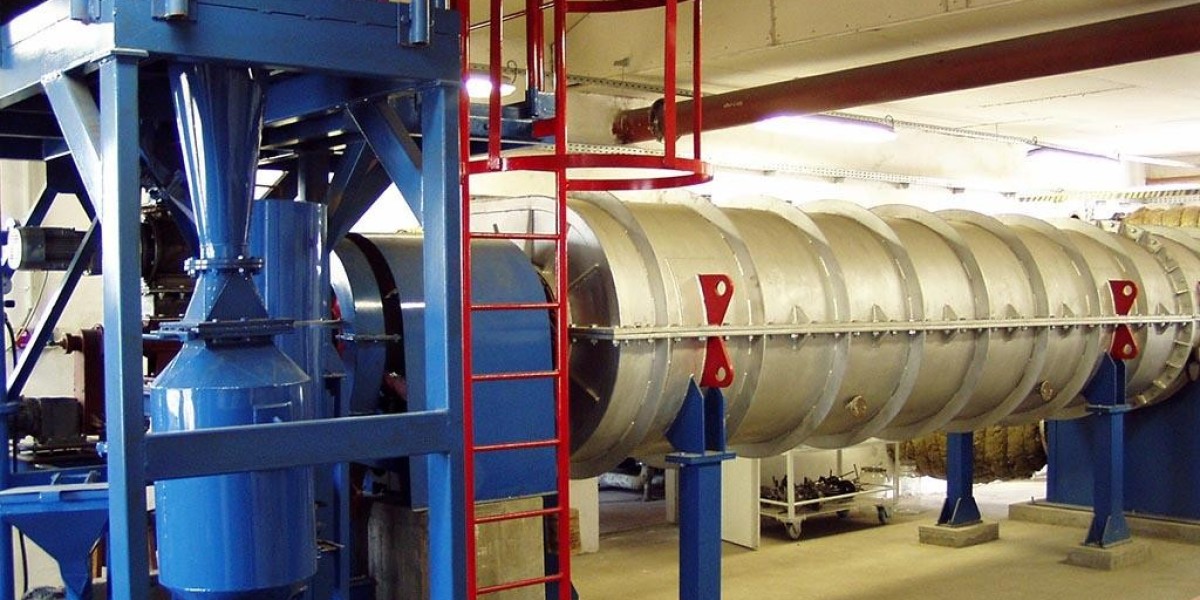The creation of biochar is beneficial for both agricultural and ecological aims. Medium-sized biochar production satisfies community requirements. It offers advantages for communities, farmers, and enterprises. The procedure generates a carbon-dense product that aids in sustainable farming, waste handling, and carbon storage initiatives. It connects localized small-scale initiatives with large industrial activities.
This level of production is attainable for many and provides considerable influence. Medium-scale biochar production tackles various issues and generates fresh possibilities. Utilizing agricultural residues and organic waste enhances the worth of materials that would likely remain unutilized. Communities and sectors can implement this strategy to foster sustainability and economic development.
Understanding Biochar
Biochar is a material that is rich in carbon. It is produced by the method of pyrolysis. Organic material is warmed in a low-oxygen setting. The outcome is a reliable product utilized for enhancing soil and capturing carbon. Medium-scale biochar production involves processes that balance efficiency and accessibility.
Applications of Biochar
Biochar improves soil quality. It improves water retention and nutrient availability as well as microbial function. It encourages sustainable agricultural practices. Farmers have started using biochar to raise crop yield and reduce chemical fertilizer dependency.
Biochar aids in carbon sequestration. It stores carbon in the soil for extended periods. This reduces greenhouse gas emissions. Medium-scale biochar manufacturing supports these efforts at a community level.
Biochar also manages organic waste. Agricultural residues, wood chips, and other materials are repurposed. This reduces waste and creates value-added products. Businesses integrate biochar into their operations to promote sustainability.
Setting Up Medium-Scale Biochar Production
Starting medium-scale biochar manufacturing requires planning. Choosing suitable feedstock is essential. Materials like wood, crop residues, and organic waste are common choices. Each type of feedstock affects the biochar’s properties and applications.
Equipment selection is another key factor. Medium-scale biochar manufacturing uses specialized pyrolysis units. These units process larger volumes efficiently. They are designed to handle varying feedstock types.
The location of production facilities matters. Proximity to feedstock sources and markets ensures operational efficiency. Medium-scale biochar manufacturing supports local needs. It reduces transportation costs and fosters regional economies.
Operational Processes
Feedstock preparation involves drying and sizing materials. Proper preparation ensures consistent pyrolysis. Medium-scale biochar manufacturing requires monitoring to maintain optimal conditions.
The pyrolysis process converts feedstock into biochar. The equipment maintains a controlled low-oxygen environment. The process also produces byproducts like syngas and bio-oil. These can be utilized for energy generation or sold to other industries.
The final stage involves cooling and packaging the biochar. Medium-scale biochar manufacturing facilities prepare the product for distribution. Packaging ensures safe handling and storage. The product is then delivered to farms, businesses, or other users.
Economic Benefits
Medium-scale biochar manufacturing creates revenue opportunities. It generates products with agricultural and industrial applications. Biochar is sold to farmers for soil improvement. It is also marketed to industries for carbon management.
This production model supports job creation. Local workers operate facilities and manage distribution. Communities benefit from increased employment. Medium-scale biochar manufacturing integrates with local economies effectively.
Waste reduction lowers costs. Agricultural and organic waste is repurposed rather than discarded. This minimizes disposal fees. Businesses participating in biochar production see financial benefits from sustainable practices.
Environmental Contributions
Biochar reduces environmental impacts. It sequesters carbon, addressing climate change. Medium-scale biochar manufacturing enables localized contributions to global sustainability goals.
Using biochar for soil improvement decreases reliance on chemical inputs. This minimizes pollution from fertilizers and pesticides. It supports healthier ecosystems.
Waste management is improved through biochar production. Organic materials are converted into useful products. Medium-scale biochar production minimizes landfill use. It reduces methane emissions from decomposing waste.
Challenges in Medium-Scale Biochar Production
Scaling operations can be complex. Producing biochar on a medium scale necessitates funding for equipment and infrastructure. Financial planning is essential for sustainability.
Regulatory compliance affects production. Facilities must meet environmental and safety standards. Adhering to these regulations ensures smooth operations.
Market development is necessary. Medium-scale biochar manufacturing relies on consistent demand. Building awareness among farmers, businesses, and industries promotes adoption.
Future Potential
Medium-scale biochar manufacturing supports sustainable practices. It aligns with environmental goals and agricultural needs. Research continues to enhance production methods. Innovations improve efficiency and expand applications.
Working together enhances these initiatives. Farmers, companies, and scientists aid in progress. These collaborations foster innovation and enhance processes. Communities gain advantages from collective knowledge and resources. Stakeholders coordinate their actions to tackle environmental and agricultural issues. Medium-scale biochar production adjusts to evolving needs and prospects, promoting sustainable methods and generating economic benefits for stakeholders.
Summing Up
Biochar addresses soil improvement, carbon sequestration, and waste management. Medium-scale biochar manufacturing balances accessibility and efficiency. It supports local economies and environmental goals. By investing in this approach, communities and businesses contribute to sustainable development. Medium-scale biochar production remains a valuable solution for addressing global and regional challenges.









